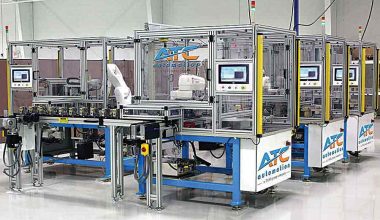Every aspect of how a business is conducted is influenced by operations management. This encompasses how you manufacture a product or service, track and improve your efficiency, and contribute to the bottom line. Simply said, operations management is responsible for the efficient running of workforces, processes, and supply chains.
This tutorial delves into the many types of operations management and how they add value to a business. Discover the intricacies of operations management strategy and the best techniques for success.
What is Operations Management?
The administration of business activities to enhance efficiency within an organization is the focus of operations management, a branch of business. It entails planning, coordinating, and supervising the organization’s processes in order to balance revenues and costs and maximize operating profit. An operations manager is responsible for ensuring that the organization efficiently translates inputs such as resources, labor, and technology into outputs.
What is the Importance of Operations Management?
The heart of any organization is operations management. The following points will help you understand the significance of operations management.
- Operations management oversees all processes and deals with concerns such as system design, operation, maintenance, and improvement. It also ensures that products and services are produced smoothly, effectively, and on time, even when unexpected circumstances happen.
- Operations management supports an organization’s reputation, which helps it reach growth and stability goals.
- Operations management ensures that products fulfill customer expectations and quality standards. Hence, delighted consumers also mean repeat purchases and recommendations, which increases brand value and provides a competitive advantage in the market.
- Recognizing and optimizing the processes involved in the production of services or goods, which can assist reduce costs, is part of operations management. Hence, operations management promotes the sale of more products/services while lowering costs, resulting in improved revenues and increased organizational growth.
- Employee productivity is increased and employees are motivated toward their jobs via operation management.
Responsibilities of Operations Management
Operations management is a business discipline that entails managing a company’s operations to ensure project execution efficiency. That suggests that the person in charge of the department will be expected to undertake a variety of strategic functions. Some of the functions include:
#1. Product Design
Product design entails developing a product that will be sold to end users. It entails coming up with new ideas or expanding on existing ones in a process that will result in the creation of new items. The operations manager is responsible for ensuring that the items offered to customers suit their needs while also keeping up with current market developments.
Customers are more concerned with product quality than quantity, and the organization should develop mechanisms to ensure that the products produced match the expectations of the consumer.
#2. Predicting
Forecasting entails generating predictions about future events based on historical data. Consumer demand for the company’s products is one of the events that the operations manager must forecast.
To forecast future consumption trends, the manager looks to previous and present data on the uptake of the company’s products. Forecasts assist the organization in determining the volume of products required to meet market demand.
#3. Supply Chain Management
From raw materials to the finished product, supply chain management entails overseeing the entire manufacturing process. Everything from product creation through shipping and distribution to delivery is under its control.
The operations manager controls the supply chain process by keeping control over inventory management, the manufacturing process, distribution, sales, and sourcing suppliers to supply essential items at reasonable pricing. A correctly managed supply chain process will result in an efficient manufacturing process, reduced overhead costs, and timely product delivery to consumers.
#4. Delivery Management
The operations manager is in charge of delivery management. The manager makes sure that the goods are delivered to the consumer on schedule. They must follow up with customers to confirm that the things delivered are what they requested and meet their functional requirements.
Whenever a consumer is dissatisfied with the product or complains about specific features, the operations manager gets the feedback and transmits it to the appropriate departments.
#5. Capacity planning
Operations management entails determining how many goods or services a company can sell or distribute in a certain time period.
#6. Quality management
Quality management or quality assurance are terms used to describe quality control. It is concerned with monitoring services or goods at each stage of the manufacturing process or service operations for any difficulties or errors.
#7. Process improvement and optimization
Process improvement and optimization entail assessing the steps in a process and either completely rebuilding the process or reorganizing the steps to enhance efficacy.
High-level strategy and planning are also the responsibility of operations management.
Types Operations Management
The three primary types of operations management concentrate on the goal, the work, or the individual employee. Which you use relies on the objectives and goals of your firm, and a manager may utilize different types depending on the situation.
#1. Objectives Management
Establishing priorities, making operational decisions based on business goals, and aligning operations to support overall company objectives.
#2. Task Management
Managing daily operations based on work in progress and linear processes to allocate tasks before progressing to the next step.
#3. Personalized Supervision
Utilizing real-time data from managers and personnel on the ground to optimize operations.
Certain aspects of operations management may need the development of new functions. Tasks may include, for example, planning and research; developing operational budgets; and managing physical inventory, supply chain, and vendors.
In addition to the types of business functions, there are three types of current operations management environments:
- Centralized operations management: Shops with centralized operations management often use a single central control system to manage critical supply chain tasks and supervise various personnel that operates in the same area.
- Decentralized: Decentralized operations management coordinates work across global supply chains and numerous locations using multiple systems, including modern infrastructure and technology such as web apps and cloud databases.
- Hybrid: A hybrid operations management environment takes advantage of both centralized and decentralized operations. For instance, you may have a centralized production center with unified manufacturing and warehousing capabilities, as well as an automated infrastructure linked to cloud-based networks for real-time monitoring.
Strategic vs. Tactical Decisions Operations Management
Strategic operations management focuses on long-term success, whereas tactical operations decisions are about responding and modifying in the short term. For the greatest results, combine these approaches.
Estimates, predictions, targets, and comparative assessments are all part of strategic operations decisions. This strategy focuses on the future in order to achieve long-term goals and assure long-term success. One critical part is using operational data to examine results and change long-term strategic plans as needed.
Tactical operations decisions, on the other hand, involve how the company reacts to changing operating situations. As the market shifts, a firm may need to adjust production schedules or labor planning.
Business Management vs. Operations Management
Businesses may integrate business and operations management strategies, but there is a distinction. Whereas operations management emphasizes day-to-day operations, business management focuses on long-term planning.
Operations Management
The process of overseeing the day-to-day activities of a business is referred to as operations management. These functions may involve employee scheduling, payroll processing, receiving and processing payments, arranging equipment and supplies, and more.
Business Management
Planning and strategy for the future are the main components of business management. While operations management necessitates a high level of operational skill, business management necessitates considerable general knowledge and incorporates external concerns.
Examples of broad business management objectives can include increasing income, decreasing expenditures, and preserving customer happiness. Among the objectives of operations management are:
- Optimizing research and development resources
- Environmental Defense
- Keeping manufacturing quality control
- Meeting financial obligations
- Maintaining industry-specific legal and compliance needs
Supply Chain and Operations Management
Each business that relies on logistics management and the supply chain must prioritize operations management. The method safeguards supply chain operations, increases productivity, and lowers costs.
Operations management is critical in companies with complex supply chains because it provides a framework for process-specific technology, tools, and activities to support a consistent flow of materials and finished goods and allows managers to efficiently direct resources toward achieving objectives. Strong logistics and supply chain manager management are essential for operations managers.
A mature operations management practice aids in the development of processes and systems for managing and measuring supply chain activities. When clients cancel orders or return goods to the warehouse, for example, the operations management team is responsible for having systems in place to reduce administrative overhead, alter production levels, and/or maximize the resale value of the assets.
Effective operations management encompasses all parts of critical work, including supply chain management, and ensures that the organization meets important performance metrics (KPIs). Managers utilize operations management KPIs to make educated decisions and coordinate efforts across the supply chain and the company as a whole.
Operations Management Processes
Making a company’s daily actions as precise and effective as feasible is the goal of the operations management process. To achieve goals while keeping costs down, the process makes clever use of resources and data.
The processes, tools, and resources required to support a company’s whole workflow are sometimes referred to as operations management. It necessitates communication with clients, stakeholders, and business units.
Based on the desired business goal, there are three types of operations management processes:
- Implementation entails designing and engineering structures and systems to ensure that your business operations run smoothly.
- Optimization is the process of ensuring that your workforce and infrastructure serve the aims of your business as effectively and efficiently as feasible.
- Improvement: Adding previously unapplied operational approaches, such as remote work, and maximizing the efficiency and effectiveness of current processes.
The best operations management approach for a certain organization varies depending on the industry, company size, and other considerations. In general, it describes the process of controlling the daily flow of tasks and information to ensure consistent and effective performance across projects. Finance, human resources, information technology, facilities management, inventory management, and other variables may be included in this process.
Best Practices For Operations Management
Best practices in operations management begin with current procedures that enable staff to accomplish their duties efficiently and produce a desirable product or service to customers. These best practices, however, may differ for every firm and must evolve in concert with shifting goals.
While there is no single road to efficient operations, businesses and individuals have discovered successful approaches to improve modern operations management. They include:
#1. Use technology to increase efficiency.
As workforce automation eliminates more and more conventional business processes, modern operations managers maximize operational capabilities through data-driven design and engineering.
#2. Make decisions based on data.
Instead of relying exclusively on historical outcomes, employee and customer behavior, and personal prejudices, modern operations management strategies emphasize making effective business decisions based on data-driven research.
#3. For business processes, use operations management.
For business process redesign (BPR) and business process automation (BPA) initiatives, use operations management approaches.
BPR for operations management refers to redesigning your important business processes utilizing information and data gained from operations management performance measurements. BPR can increase ROI, reduce operational expenses, expand production capacity, and improve service capabilities.
BPA for operations management refers to the use of technology to supplement or replace manual duties and processes. BPA can boost efficiency, save time and money, decrease errors, and increase transparency. When replacing jobs that require wasteful use of time and resources, operations management automation is most effective.
Operations Management Challenges
Operation management problems include decision-making, resource allocation, and time management; the goal is to meet objectives on schedule and within budget.
Typical operational management difficulties include:
#1. Business Dynamics
Operations managers juggle numerous business activities and make decisions that affect other departments such as product development, customer service, and finance.
#2. Global operations
Global supply chains require operations management to keep up with global market changes and discover operational efficiency in multinational operating environments.
#3. Advanced technology
Technological advancements continue to raise the technical complexity of this profession. Today’s operations manager needs to be highly technical and knowledgeable about information management.
#4. Time management
While there are various sources of operations management issues, improper time allocation caused by factors such as labor shortages is the most common.
#5. Sustainability
Operations managers must find sustainable business practices that account for future operating situations due to changing rules and resource shortages.
Operations management is responsible for influencing organizational policies and practices that are required for safe, efficient, and secure departmental functions. It entails planning, controlling, overseeing, and controlling the work of assigned staff in order to meet predetermined goals and objectives.
An operations manager has two key responsibilities: managing operational resources and achieving the organization’s goals and objectives. Understanding typical operations difficulties enables operations managers to prevent or remove operational inefficiencies that impair an organization’s ability to conduct key functions efficiently.
Operations Management and Human Behavior
The field of behavioral operations management investigates the role of decision-making. This is significant since humans do not always base their decisions on logic and factual facts.
Many businesses are evolving from being purpose-built for a single market to being immensely complex with dozens of roles. As a result, operations management methods must become more adaptable and cross-functional. Sadly, small to medium-sized firms may lack cross-functional leadership and responsibility in operations management. When leadership is missing, inefficiencies and behavioral difficulties can build and spread throughout a business.
The Journal of Operations Management’s research on this topic focuses on understanding human behavior in order to better operations management and reap its benefits. Risk aversion, for example, is a behavioral issue that research has shown to impede operations management. This problem manifests itself in a variety of ways and can impair performance.
Operations Managers’ Responsibilities
Responsibilities vary depending on the nature of the organization and the specific function, but in general, someone working in business operations is responsible for:
- Assessing, creating, and implementing business processes
- Handling logistical processes and the supply chain
- Supervising production, distribution, and quality control
- Controlling and analyzing financial budgets
- Making strategic decisions and collaborating with other senior staff members on business strategy
- Managing Employees
- Assisting HR with recruitment initiatives
- Developing ties with stakeholders and suppliers
Project Manager Skills
Working in operations management necessitates a wide range of abilities, including:
- Ability to lead
- Organizational abilities
- Interpersonal abilities
- Ability to solve problems
- Process enhancement
- Project management
- Financial evaluation
- Knowledge of business
- a methodical approach
- Communication abilities
- Ability to make decisions
- Good time management
Operations Management Career Paths
A career in operations management can take various shapes, from broad business operations responsibilities to more narrow, specialized opportunities. Here are a few to get you started:
#1. Business Operations Manager
$87,203 is the average salary for business operations management in the United States.
From 2021 to 2031, there will be a 6% increase in jobs.
- Job Description: A business operations manager develops data-driven strategic plans to enhance operations.
- Education: A bachelor’s degree in business administration, finance, or management is customary for business operations managers. For more senior positions, a master’s or doctoral degree in a business-related subject is typical.
#2. Purchasing Manager
The average salary for a purchasing manager is $86,785.
Employment outlook: 6 percent reduction from 2021 to 2031 (decline owing to some jobs becoming automated and cooperative purchasing agreements, though this is predicted to increase due to the need to find new business during the supply chain crisis) (decline due to some jobs becoming automated and cooperative purchasing agreements, though this is projected to increase due to need to find new business during the supply chain crisis)
A purchasing manager purchases things, goods, and services for resale by their organization. Their job is to find the best and highest quality products at the lowest price in order to sell them and make a profit. A purchasing manager is likely to manage or supervise buyers or purchasing agents.
Normally, a bachelor’s degree and relevant experience are required.
#3. Materials Manager
The average salary for a materials manager is $85,235.
From 2021 to 2031, there will be a 6% reduction in employment.
A materials manager is in charge of acquiring, storing, and distributing a company’s inventory and stock. They conduct price research, keep track of stock levels, and negotiate prices and contracts.
Materials managers (also known as procurement managers) often have a bachelor’s degree in a relevant profession, such as logistics or business administration, as well as relevant job experience.
The average salary for an operations research analyst is $101,610.
From 2020 to 2030, there will be a 25% increase in jobs (much faster than average)
Operations research analysts use high-level statistical analysis and mathematical modeling, data mining, and optimization approaches to assist organizations in making crucial decisions regarding cost-effectiveness, staff resources, supply chain, and product positioning.
Education: A bachelor’s degree or higher
The Best Way to Advance Your Career as an Operations Manager
The stages outlined below will help you get started in operations management, including on-the-job experience, education, and professional certifications to help you stand out.
#1. Think about getting a bachelor’s degree.
A bachelor’s degree in a business-related field, such as business management or business administration, is often required for jobs in operations management. Finance, business management, economics, business communications, and logistics are just a few of the topics covered in these programs. A bachelor’s degree in a specialized industry, such as economics, finance, or law, is another option to consider.
#2. Get pertinent professional experience.
Working as an operations manager normally takes five years of relevant experience. Start out as an entry-level employee (such as an operations assistant) or as a buyer to obtain experience. Later on, you can assume more senior duties to hone your management abilities.
#3. Think about getting a graduate degree.
Operations management specialists frequently hold master’s degrees, specifically a Master of Business Administration (MBA) degree, in high-level positions. MBAs emphasize leadership, finance, management, and marketing, with elective subjects in logistics and operations allowing you to dive deeper into the subject.
#4. Progress with qualifications and credentials.
Certifications and certificates in operations management demonstrate that you have a deeper understanding of your subject and a higher level of expertise, which can help you land a better job. Many options are accessible at various levels, from undergraduate to graduate, as well as those with no educational qualifications.
Certifications with low or no educational requirements are widespread and include popular alternatives like the Certified Business Professional (CBP) from the International Business Training Association and the Certified Purchasing Professional (CPP) from the American Buying Society.
Conclusion
In layman’s terms, operations management (OM) is the process of implementing business procedures to maximize efficiency as a means of increasing profitability. To achieve their core objectives, operations managers use structure and productivity throughout the process.
Balancing the efficient use of resources, including employees, materials, equipment, and technology, is critical to the success of the OM process and, by extension, the firm.
- BUSINESS OPERATIONS: Definition, Examples, And Management
- WHAT IS VALUE CHAIN ANALYSIS? Definition, Importance, and Examples
- MARKETING MANAGER: Job Description, Salaries & Guide
- OPERATIONAL GOALS: Steps In Setting Realistic Goals +Examples
- What is Supply Chain Planning? Detailed Guide






